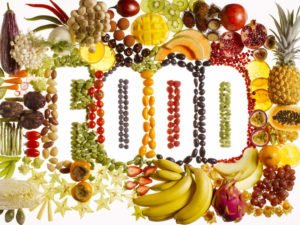We are what we eat, so if you want to have a high quality body, you need to eat high quality foods. The idea of eating your way to longevity is a fascinating concept. Why not try it? Eating healthy foods has no downside.
22 Foods That May Boost Longevity
1. Avocados are a great source of healthy fats, which helps decrease inflammation. Avocados also provide nearly 20 essential nutrients, including potassium, which helps balance your potassium to sodium ratio.
2. Organic coconut oil is an excellent source of healthy fats. Coconut oil is great for your thyroid gland and your metabolism. It contains medium-chain triglycerides, which burn cleaner than carbs, with less oxidative stress.
3. Grass-fed butter. About 20% of butterfat is made up of short and medium chain fatty acids, which can be used for quick energy.
4. Organic pastured eggs. Contrary to popular belief, some of the healthiest foods are rich in cholesterol and saturated fats. Eggs are no exception. Cholesterol is needed for the brain, for hormone production, cell signaling and other cellular processes.
5. Wild-caught Alaskan salmon. This is a low toxin fish that is high in nutrition and healthy omega-3 fats, as are sardines and anchovies.
6. Organic raw nuts such as macadamia and pecans. Macadamia nuts have the highest fat and lowest protein and carb content of any nut. About 60%of the fat is the monounsaturated fat oleic acid. This is about the level that is found in olives, which are also well-known for their health benefits. Olives did not make this list, but I think that they should have.
7. Beets, raw or fermented. Beets have many health benefits, including boosting nitric oxide and blood flow. Beets can also lower blood pressure by an average of four to five points in just a few hours. Beets have the highest sugar content, at 36%, of any vegetable, so fermented beet extract is the way to go for a low glycemic index heath boost.
8. Arugula, contains flavonoids, which help improve blood vessel function, increase blood flow, lower blood pressure and lower inflammation. Arugula also has a high detoxification value.
9. Sprouts, microgreens and baby greens. Immature greens have a higher nutrient density as compared to mature greens.
10. Grass-fed kefir. This cultured milk product is similar to yogurt and is easy to make at home with grass fed milk. It is high in probiotics and also contains fiber.
11. Fermented vegetables. One of the best and least expensive ways to optimize your gut health is to eat fermented foods. Fermented vegetables are a great source of vitamin K2. Sauerkraut is the most common fermented vegetable, but make sure it isn’t pasteurized, since that process kills the probiotic bacteria.
12. Organic bone broth. Bone broth dates back to ancient times. It has healing properties and is easily digested. Bone broth contains bone and cartilage building collagen, immune boosting nutrients and is beneficial for the treatment of leaky gut syndrome.
13. Organic psyllium. Psyllium is a healthy dietary fiber that helps nourish healthy bacteria in your gut, reduces intestinal inflammation and has been known to relieve irritable bowel syndrome. The recommended daily amount of fiber is between 20 and 30 grams, but 100 grams is more optimal.
14. Turmeric, is nicknamed the “spice of life,” has a long history of medicinal use for Ayurvedic medicine and traditional Chinese medicine. Its bioactive compound is curcumin. Turmeric has been found to help maintain a healthy digestive system, modulate about 700 genes, positively control more than 160 different physiological pathways, improve cell membranes and lower inflammation.
15. Ginger is known for its medicinal qualities. The Annals of the New York Academy of Sciences recently published a review showing ginger may protect against a wide range of chronic diseases, in part due to its beneficial effects on oxidative stress and inflammation.
16. Garlic and Onions. These allium vegetables contain sulfur-containing compounds such as allicin, which have many health-promoting effects. Studies have demonstrated that garlic may inhibit many diseases by reducing inflammation, boosting immune function and improving cardiovascular health. It’s also been shown to combat at least 14 different kinds of cancer cells.
Onions also have many beneficial properties. Onions are anti-allergic, anti-histaminic, anti-inflammatory and are also an anti-oxidant. Onions are especially high in a polyphenol flavonoid called quercetin that may help fight heart disease.
17. Mushrooms are rich in protein, fiber, vitamins B and C, calcium, minerals and are an excellent sources of antioxidants, including ergothioneine, which is recognized as a “master antioxidant”.
18. Grass-fed beef. Compared to conventional beef from animals raised in concentrated animal feeding operations, grass-fed beef tends to have significantly better omega-6 to omega-3 ratios, higher concentrations of conjugated linoleic acid (CLA) and antioxidants and has a lower risk of being contaminated with antibiotic-resistant bacteria.
19. Whey protein is a byproduct of cheese production. Whey was promoted for its health benefits by Hippocrates as early as 420 B.C. Besides providing all of the essential amino acids your body needs, whey protein from organically raised grass fed cows also contains three ingredients of particular importance for health; leucine, glutathione and CLA.
20. Broccoli and other cruciferous vegetables. Broccoli is superfood thanks to plant compounds such as sulforaphane, glucoraphanin, phenolic compounds and diindolylmethane (DIM). Studies have shown sulforaphane causes apoptosis (programmed cell death) in many cancer cells.
21. Leeks. Another allium vegetable that is closely related to onions and garlic. Leeks have much to offer in the way of good health. Leeks contain sulfur-containing compounds, such as allicin. Leeks also contain kaempferol, a natural flavonol also found in broccoli, kale and cabbage, which research has linked to a lower risk of cancer.
22. Black cumin, also known as black seed (Nigella Sativa), has at least 20 different pharmacological activities, including natural antibacterial properties, antioxidant, renal protective and gastro-protective properties. Other benefits are potential protection against both heart disease and cancer.


